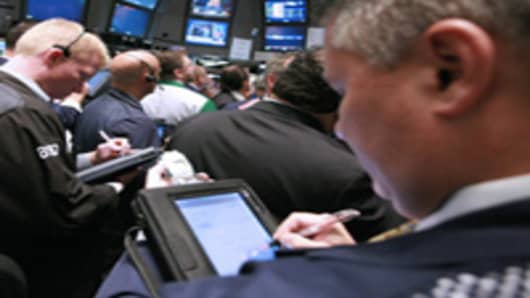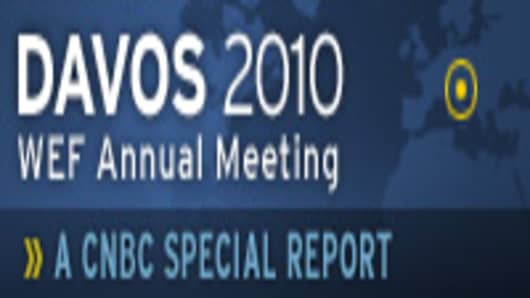The stock market has a long history of taking its cues from January, so investors will be hoping that this month's 3 percent drop is not a harbinger for the rest of the year.
Many strategists, in fact, think the so-called January Effect won't be any more accurate this year than it was in 2009, when the market finished the month down roughly 9 percent but ended the year up a whopping 23 percent.
That has many investors thinking that the market will continue to defy conventional logic this year.
"I never put much stock into the whole idea of the January Effect," says Matthew Tuttle, president of Tuttle Wealth Management in Stamford, Conn. This month's market drop "is more reflecting a lot of what's coming out of the administration right now and some of the China issues, things like that. I don't think it will have an effect on what happens the rest of the year."
Tuttle's comments reflect those of many strategists, who think such maxims—"As January goes, so goes the rest of the year" is a popular one—are part of Wall Street superstition and not useful for the dynamics of today's market.
"The January Effect, when you've got so many different powers pulling at the market right now, has not a lot of significance at all," says Nadav Baum, managing director of investments at BPU Investment Management in Pittsburgh.
Still, history is hard to ignore.
January has a sterling track record, replicating the market's movements 3 out of 4 years through the course of history, according to the Stock Trader's Almanac. Last year was the first time a down January for the S&P did not precede an extended bear market or flat market.
But there is a ray of hope for 2010: A January that begins with five days of straight gains has led to full-year gains 31 of the past 36 years. This year's market posted incremental increases for its first five sessions.
"It just doesn't strike me that people will say, 'I don't want to buy here because January is down and the whole year will be down,' " says Richard Sparks, senior analyst at Schaeffer's Investment Research in Cincinnati. "There are a lot of people suggesting that after last year's big run there will be a correction, and maybe some people will start thinking this is going to be the one. But I could certainly see the market bounce here."
Some of the most recent market metrics suggest investors are tiptoeing back into risk. Much of last year's moves were from institutional investors, with the retail side still plowing money into bond funds.
The latest weekly data from EPFR suggests investors pulling money out of equity funds but at the same time putting that money back into emerging markets, suggesting that risk remains alive.
The latest poll from the American Association of Individual Investors has bulls and bears almost even, a significant turnaround from recent polls that showed market optimists winning but hardly indicative that mood was turning against stocks.
"The fundamental view is one that there is no need for panic," says Diane de Vries Ashley, managing partner of Zenith Capital Partners in Coral Gables, Fla. "There is no need not to be invested. You have to do it judiciously but you've got to be in the market."
If there is a significant change this year it could be a return to quality, says Baum, who acknowledges that strategy took a hit last year—when beaten-down stocks ruled—but will regain favor in 2010.
"Right now there are a still a lot of high-quality issues to be buying," he says. "Now more than ever in a global economy you have to find asset classes that are truly noncorrelated to US equities. You need a truly diversified portfolio and you have to be in the game for three to five years."
Companies such as Warren Buffett's Berkshire Hathaway , whose Class B shares are now more accessible to average investors since the stock split, will do well, as will "big old brick-and-mortar" companies such as Coca-Cola and Johnson & Johnson, Baum says.
Tuttle says he, too, is undaunted by a weak January but stresses the need for investors to be nimble in what could be a challenging year.
As long as interest rates stay near zero stocks should do well, he says, but cautions once the Federal Reserve starts hiking. That could be a ways off, with Bank of America-Merrill Lynch global research today predicting no rate hikes until March 2011.
"To us the trend is still up even with the hiccup we've had here," he says. "It's just about being cautiously optimistic. As long as the trend is up we're going to be invested. As soon as we see it start to turn down we're going to be ready to pull the trigger and get out and move to cash."
Likewise for Ashley, who has turned extensively to exchange-traded funds to guard against volatility among individual stocks should the the market start to wobble.
"The idea is to stay with the market and not abandon it and at this point in time not to move back into bonds," she says. "We tend to like equities a lot."




